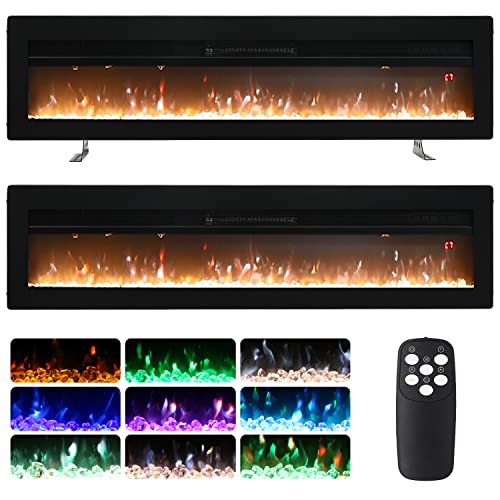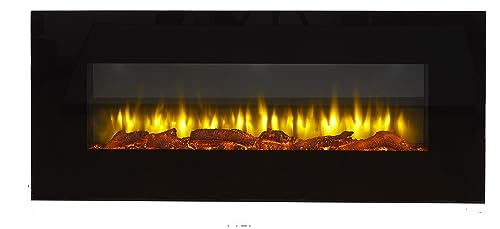Guide To Outside Wood Burners: The Intermediate Guide Towards Outside …
페이지 정보

본문
 What You Need to Know About Outdoor Wood Burners
What You Need to Know About Outdoor Wood BurnersOutdoor wood burners can be a cost-effective solution for heating homes and businesses. They also help to reduce dependence on non-renewable fossil fuels and help to create a more resilient energy strategy.
A well-seasoned wood is vital for efficient burning. Green or unseasoned wood has a higher moisture content and can cause creosote accumulation, which can affect performance.
Efficient
Outdoor wood burners (OWBs) have been around for years and are an extremely green and efficient way to heat your home. The typical design of OWBs promotes a slower, cooler fire which results in poorer combustion, and more smoke and creosote. These unburnt fuels can cause health issues, fire hazards, and deteriorate the surrounding environment.
Additionally the visible smoke puffs that OWBs generate can cause neighbors to complain. This may result in DEC (Department of Environmental Conservation) and taking enforcement actions. This kind of problem can negatively impact the value of your property, and may lead to your OWB being shut down.
Crown Royal Stoves offers a line of EPA Certified outdoor wood furnaces that are referred to as the Pristine Gasification Series that utilizes technology to maximize combustion efficiency for a clean, smokeless combustion. This is achieved through a negative pressure air system that pulls fresh hot, dry clean air in from the bottom of the boiler, and pushes it back out through the chimney at a much greater rate than traditional outdoor wood boilers. This is achieved through a unique design that utilizes an encapsulated, multi-pass heat exchanger made of 409 Titanium Enhanced Stainless Steel.
If properly used properly, when properly used, the Pristine Series OWB has an 99% efficiency in combustion for a cleaner and smoke-free fire. It uses less wood and produces a lot less emission than traditional OWBs. To further maximize your OWB's performance it is essential to only burn dry, clean, seasoned wood. It is recommended to season your wood for a minimum of six months or one year before burning it. This will result in the most efficient and clean burn.
You can increase the efficiency of your wood-burning stove through each week a "dry burn". This method eliminates creosote build up, keeps your boiler in good condition and extends its life span. By adding a stick for removing creosote to your stove every time you fill it up, you can dramatically reduce the amount of creosote that you use. The product is available from Wisconsin Wood Furnace.
Clean
A wood burning stove can be very dirty due to burnt soot particles. They are difficult to remove so make sure you remove any buildup from the glass of your stove immediately. Any soot that is not eliminated will begin to harden and make it more difficult to remove. It's important to select the right cleaners however, you should be careful not to scratch the glass by using anything that can scratch it. This could result in an area of weakness that could shatter glass when exposed high temperatures.
Before you begin cleaning your wood stove, you must ensure that it is not lit and completely cool. Also, make sure that the area around it is covered with newspaper. This will prevent any spillage of ash that can stain and mark surfaces.
Depending on the quality of the wood that you choose to use, it could take up to one year for your stove to get properly seasoned. The wood that has been treated with a seasoned finish will not only burn more efficiently, but will also produce less creosote. This is the substance that accumulates on your chimney, reducing effectiveness and creating the risk of fire. If you're using unseasoned wood, or just starting an outdoor fire fireplace, it's best to open the lower backdoor, and scoop out ashes into a noncombustible container each week.
You should also do a sediment flush on your boiler at least once every four years. This is a simple five second flush from the drain valve of your boiler. This will remove any accumulation of sediment inside the system and ensure that your boiler is in good working condition.
Once you've completed the sediment flush, it's now time to clean the exterior of your outdoor wood burner. Before you begin, it's crucial to cover the floor around the stove with newspaper. It is also beneficial to wear gloves and protective eyewear. You should also have an ash container, a shovel container for ash, and an instrument for scraping. To protect the refractory you must lay down a cloth to protect it while you scrape away ash and coal deposits.
Easy to operate
Despite their popularity (they were one of the 1990s' "it" trends, along with mullet haircuts) outdoor wood boilers, also known as outdoor furnaces or outdoor wood hydronic heaters, are frequently misunderstood. They are not like the popular EPA wood stoves, which are designed to burn low temperatures continuously. They have an increased rate of fire and generate more smoke. This is the reason why local governments regulate or even ban their use.
OWBs work best for homes with a high level of insulation. The smoldering, visible smoke can also be a source of complaint with neighbors and has led to many OWBs being shut-down or being sued in the past. For OWBs dry wood with lower moisture content is needed to perform effectively. Using green or unseasoned corner wood burning stove reduces efficiency, leads to creosote build up and can cut down the life of the burner. A moisture gauge will allow you determine the time it takes for wood to dry.
In contrast, dual-stage wood gasification boilers (OWGB) utilize three steps of process which makes use of the available energy in the wood and results in much less smoke. These furnaces are more efficient than conventional OWBs, and can be used for a wide range of fuels. Wood gasification boilers require dry and seasoned wood. The majority of wood will be seasoned within a year, however oak and other species with a hardy structure may take two years or more to fully mature. This is due to lower volume of water and a greater density. This allows them to hold heat for longer, increasing efficiency and decreasing pollution. The EPA "Burn Wise' website and Cornell Cooperative Extension are great sources for homeowners to understand how to burn outside wood burners efficiently to minimize pollution to the air.
Low Maintenance
Modern outdoor wood stoves are engineered to be environmentally friendly. Modern outdoor wood furnaces do not emit excessive CO2 or heat. They also burn more efficiently than indoor wood stoves. They also require less wood to produce the same amount of heat as traditional stoves.
Outdoor wood burners also require less maintenance than indoor wood heater stove burners and are more forgiving when it comes to the moisture content of the wood. Outdoor wood burners are suitable for wood that has been properly "cured" or seasoned. This could take a whole year or more for certain types of wood. It is crucial to use a moisture meter to check the water content of your cast iron wood burning stove prior to loading.
In the course of operation, it is crucial to examine the system on a regular basis for creosote accumulation. Creosote is a byproduct from combustion and can build up in the chimney and flue if it is not cleaned frequently. It can be eliminated by pouring a creosote-removing product into the fire. Regular cleaning of the chimney and flue will eliminate dangerous creosote, and boost efficiency.
 Crown Royal Stoves developed a new airflow technology known as Negative Pressure Gasification to achieve 99% combustion efficiency. Our EPA certified Pristine Series outdoor outside Wood burners furnaces utilize this technology to pull air from the bottom, forcing all the gasses into an insulated, water-surrounded secondary combustion chamber, which is easy-clean Turbulators to ensure a smoke-free and pollution-free burn.
Crown Royal Stoves developed a new airflow technology known as Negative Pressure Gasification to achieve 99% combustion efficiency. Our EPA certified Pristine Series outdoor outside Wood burners furnaces utilize this technology to pull air from the bottom, forcing all the gasses into an insulated, water-surrounded secondary combustion chamber, which is easy-clean Turbulators to ensure a smoke-free and pollution-free burn.- 이전글The Secret Secrets Of Handles And Hinges 24.12.23
- 다음글15 Upvc Door Handles Benefits Everybody Should Be Able To 24.12.23
댓글목록
등록된 댓글이 없습니다.